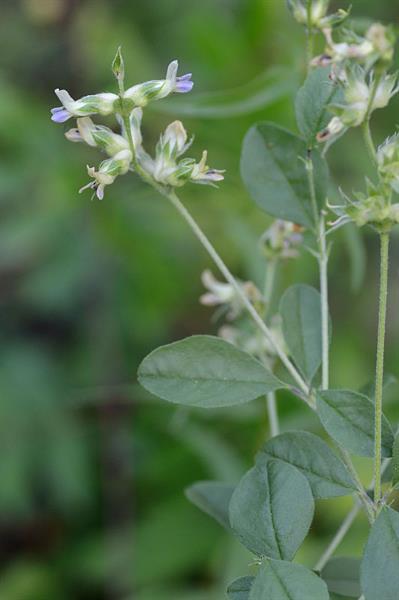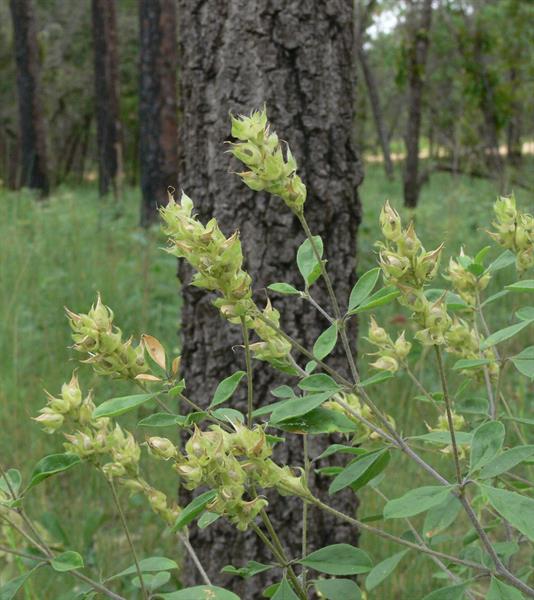
Origin/Endemic status: Endemic
Other Comments: It is related to P. esculentum (Pursh) Rydberg, the "prairie potato," prized by early travelers across the prairies for its edible tubers. An interesting collection label (by R.E. Wicker, collected in 1942, the specimen at NCU) mentions both the edible tubers and the characteristically sparse population structure of the species. "Not uncommon near Pinehurst in … open places in sandy pine woods…, but usually only one plant at a time. Tuber hard, dark brown, about size of a medium-sized Irish potato, somewhat ventral-elongated with roots coming from pointed base. Internal pure white, apparently almost entirely starch… Mr. Wicker says that he rather likes to take a bit of it and chew when fresh, has a rather condiment taste, but does not think it well to eat…" Because of its rarity, P. canescens should not (of course) be eaten. Because of its habit, that of a very bushy, tumbleweed-like plant, it superficially most closely resembles various Baptisia species, but it is easily separated by its rather dense and soft pubescence (our Baptisia are all glabrous or rather inconspicuously puberulent, except the very unifoliolate B. arachnifera).
Synonymy: = C, FNA11.1, K1, K3, K4, S, SE3, Va, WH3, Grimes (1988), Grimes (1990), Isely (1998); = Psoralea canescens Michx. – F, G, RAB, S13
Heliophily: 8
Hover over a shape, letter, icon, or arrow on the map for definition or see the legend.
 © Gary P. Fleming | Original Image ⭷
© Gary P. Fleming | Original Image ⭷ © Gary P. Fleming | Original Image ⭷
© Gary P. Fleming | Original Image ⭷ © Gary P. Fleming | Original Image ⭷
© Gary P. Fleming | Original Image ⭷ © Bruce A. Sorrie | Original Image ⭷
© Bruce A. Sorrie | Original Image ⭷ © Bruce A. Sorrie | Original Image ⭷
© Bruce A. Sorrie | Original Image ⭷Feedback
See something wrong or missing on about Pediomelum canescens? Let us know here: (Please include your name and email if at all complicated so we can clarify if needed.)
Cite as...